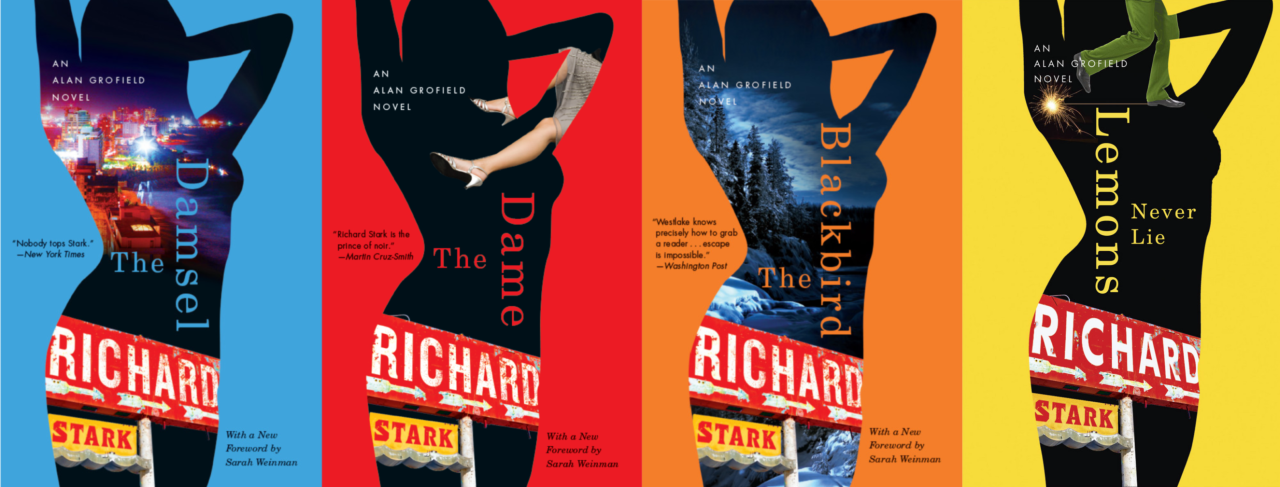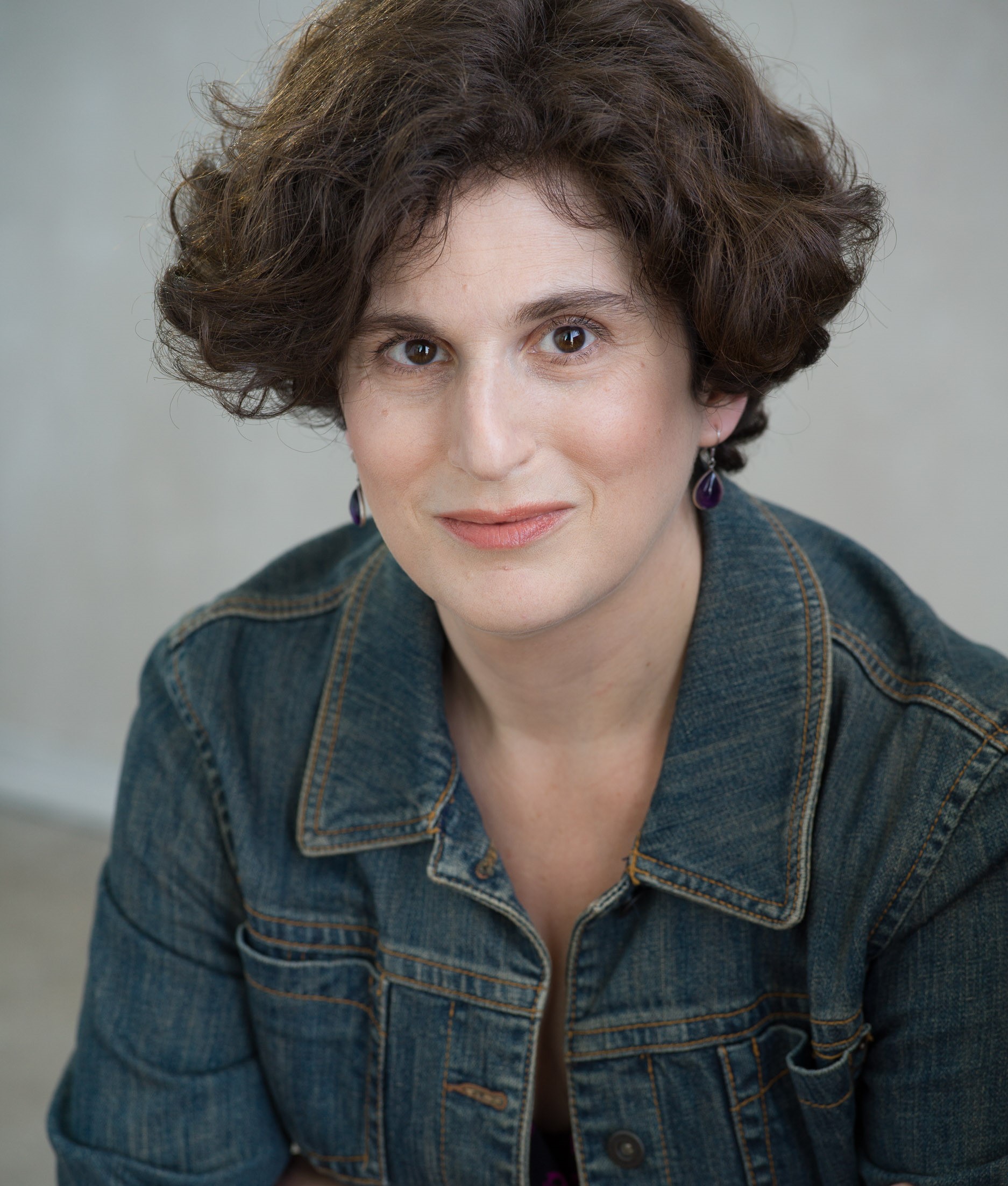tough business:
a parker site
“No filler, just action and thrills” - An Exclusive Interview with Sarah Weinman


Tough Business recently had the pleasure of interviewing Sarah Weinman, journalist, author and crime fiction authority. Sarah wrote the foreword for the University of Chicago Press editions of the four spin-off Grofield novels, and she kindly took the time to chat with us and dig a little deeper into Parker's most memorable partner-in-crime, her introduction to Donald Westlake's work, and the low-down on what makes Stark stand out from his contemporaries.
1) How did you first come across Richard Stark's Parker novels? Were the solo Grofield ones a later discovery?
I read Westlake-as-Westlake first, going back to my college years in the late 1990s when I was discovering crime fiction in a more concentrated way, and I'm pretty sure I read some of the Stark 2.0s (starting with Comeback) and didn't quite take to them. (For what it's worth, I have many favorites of Westlake's more comedic books, but my heart belongs to Dancing Aztecs and I remember, the first time I met Westlake, gushing about how much I loved it to the point where he was clearly embarrassed at the compliment.) It wasn't until the University of Chicago Press started reissuing the Stark series that I read them in chronological order, and I had a reaction similar to many -- binging, wildly, sometimes 2-3 in a day or night. With respect to Grofield, Lemons Never Lie, specifically the Hard Case Crime reissue, was my introduction, and then I read the earlier three when Levi Stahl asked me to write the foreword to the U of C reissues.
2) What was it like meeting Mr. Westlake, and what was your impression of him? I wasn't aware you had met, it's always great hearing everybody's stories!
I did, several times -- never in extensive conversation, but a couple of times at the late, great Black Orchid Bookshop on the Upper East Side, a couple of times at the wonderful, long-gone New York Is Book Country festival, a few times at the mystery bookshop where I once worked (Partners & Crime in the West Village) and a handful of times at the Edgar Awards. He seemed kind and uncomfortable with compliments, but the greater sense I got is that his brain was working triple time elsewhere, probably plotting his next novel move.
3) Your foreword for the University of Chicago Press editions of the four Grofield novels is the sole piece of academic writing we've ever encountered regarding these particular books, and it's often been said in fan circles that this spin-off series catered to a more female-oriented audience than the Parker novels for various reasons (they were hardcovers, not strictly crime fiction, etc.) As one of the few women writing about crime fiction, how were you approached to write the foreword? Were the books assigned to you, or did you choose them?
That is rather surprising to hear, in fact! But rereading the foreword to answer your questions, I'm surprised at how well the piece held up -- I did try to take the books seriously and on their own terms, even as I think they (with the exception of Lemons Never Lie) aren't as good as the Stark books, particularly Stark 1.0 (ending with Butcher's Moon.) I've never found a good explanation for why The Damsel ended up as Stark's hardcover debut -- probably an accident of timing when Stark briefly moved the Parker books to Fawcett Gold Medal, not the happiest author-publisher partnership -- but I'm not sure the Grofield novels were catering to women readers, and Westlake wouldn't have a female editor (the incomparable Lee Wright at Random House) until a few years later.
4) Relatedly, there are several interviews where Donald Westlake spoke about the diversity of the Parker fanbase going as far back as when the original books were first coming out in the 1960s, and as women ourselves we've often found we're part of an underrepresented group in the common perception of Stark's audience. Do you suppose Parker's status as an outsider resonates with readers? Does Grofield play a similar role?
Parker's outsider status is probably the main reason readers love him -- he compromises for no one, has nary a trace of sentimentality, is kind of a Hammett protagonist on steroids (Westlake, as we know, revered Hammett and was more critical of Chandler; similar to me, in fact!) As for Grofield, I generally think he has been taken more for granted as a supplicant to Parker, even in the books he starred in. Also, while I haven't gone looking for the specific essay, I'd love to see one comparing/contrasting Parker with Patricia Highsmith's Ripley, who ironically was dormant for the entirety of the 1960s, but then re-emerged in 1970.
5) Regarding the novels' themes, Grofield is returned to his original noir-like setting in Lemons Never Lie but there is still a sense of artifice to his role in the book, and to his relationship with Mary as well -- they live on stage, their home is a theatrical set. How do you see their relationship, and Grofield's reaction to Mary's traumatic experience?
I don't think it's an accident that the treatment of women in the Grofield novels is somewhat more negative than in later Stark 2.0 novels -- and in Westlake's later output as a whole. (With respect to Lemons Never Lie, it's the Grofield novel I've read the least recently, but my memory of Mary being sexually assaulted is that it was handled in the way that I would expect an early 1970s paperback pulp novel to handle it, and was in keeping with the overall darkness of the book, and also Westlake's invention of the "bouncing ball" structure that he mentioned.) Part of it was that Grofield himself seemed to be less of a fixed character, shifting in accordance with the different genre forms the author was trying out. But also this was a somewhat tumultuous time personally for Westlake, and once things shifted with his third and final marriage to Abby Adams in the later 1970s -- I'd also recommend the 1977 essay she wrote about living with Westlake and all of his pseudonyms, reprinted in The Getaway Car -- so too would things shift with the Stark books, particularly Parker's relationship with Claire.
6) There's been a lot written about Parker's feelings towards Grofield, and how his actions in Butcher's Moon "absolutely shock his fellow heisters" -- like Levi Stahl put it when we spoke to him. How do you interpret their dynamic from Grofield's side of things?
If one reads Parker as a sociopath, which he might be, then the fact that he shows real regard and affection for Grofield feels off-kilter. If one reads him as having an inviolate moral code, then it makes more sense. If one reads Parker as a function of the vagaries of the paperback and hardcover book publishing industries of the 1960s and 1970s (and then, 1990s/2000s) then the inconsistencies can be forgiven a little bit more.
7) You've written extensively about crime fiction, do you find that Stark's work stands out among his contemporaries?
Absolutely, and not for the reasons others would give. The Parker books, particularly the 1.0 ones, all seem to follow an "AABA" structure -- first two parts are Parker's POV, the third is from the antagonist's perspective, then back to Parker again. I've never seen this structure done quite in the same way by anyone else -- is it an old-style pop-song reference? Or musical theater? (Westlake had, ah, complicated feelings about musicals.) But also, they seem to be both of their time and completely outside of time, no filler, just action and thrills.